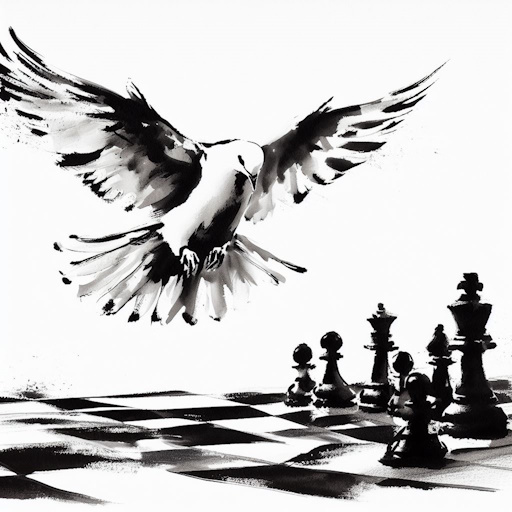Dovetail mate (1 move)
Master this and many more motifs
systematically with
Puzzle Academy

Explanation
This pattern is also known as "Cozio's mate" after Carlo Cozio, Count of Montiglio and Salabue. Cozio gave an example of this checkmate pattern in his book "Il giuco degli scacchi", which was published in 1766.
This is the position from Cozio's book.
White can deliver Cozio's mate with 1.Qh6+ Kg3 2.Qh2#.
Today the pattern is most often called "dovetail" mate, as the pattern that the queen, king, and the two blocked escape squares form resembles the tail of a dove.
Examples
White can deliver dovetail mate with Qg5#. The queen is guarded by the pawn on h4, and the only escape squares not guarded by the queen are blocked by the queen on f7 and the rook on e6.
Black can deliver dovetail mate with Qe4#.
The queen is protected by the pawn on d5, which also guards the escape square c4.
Note that the queen cannot guard c4 in this case, because the pawn on d4 is in the way.
The only other escape squares are blocked by the queen on d2 and pawn on c3.
Dovetail mate can sometimes happen in the opening, when the king is in front of his own pieces, which then block the escape squares. Here is an example after only six moves:
White can win with the dovetail mate Qe6#. The queen is protected by the bishop on f7, which also guards the escape square e8. The only other escape squares are blocked by the queen on d8 and the pawn on c7.
Pattern matching
This pattern can happen if the opponent's king is in front of its own pieces, for example in endgames, or if the king was forced out of its initial or castling position by an attack.
Related patterns
Related patterns are the swallow's tail mate (the queen is orthogonally adjacent to the king) and epaulette mates (the queen is not adjacent to the king).